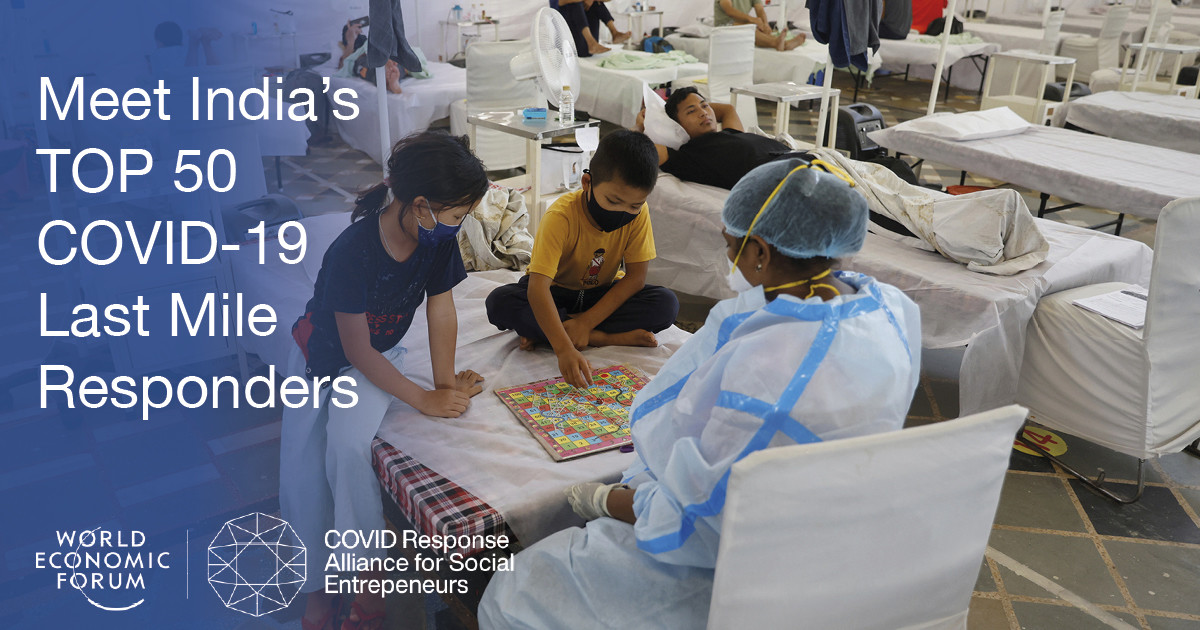COVID-19: What you need to know about the coronavirus pandemic on 17 September

Cinemas have reopened in Jakarta - but restrictions remain. Image: REUTERS/Willy Kurniawan

Explore and monitor how COVID-19 is affecting economies, industries and global issues

Get involved with our crowdsourced digital platform to deliver impact at scale
Stay up to date:
COVID-19
- This daily round-up brings you a selection of the latest news and updates on the COVID-19 coronavirus pandemic, as well as tips and tools to help you stay informed and protected.
- Top stories: International organizations urge action on vaccine equity; Poll sees hit to US Q3 growth from Delta variant; COVID-19 vaccine booster campaign begins in England.
1. How COVID-19 is affecting the globe
Confirmed cases of COVID-19 have passed 227 million globally, according to Johns Hopkins University. The number of confirmed deaths stands at more than 4.66 million. More than 5.82 billion vaccination doses have been administered globally, according to Our World in Data.
Australia is set to trial a home quarantine system for fully vaccinated international travellers arriving in Sydney, in an effort to reopen its borders.
However, New Zealand has extended a suspension of quarantine-free travel with Australia for another eight weeks. It further extends a pause in the travel bubble between the two countries, amid fresh outbreaks of COVID-19 cases.
A British study will examine the immune responses of children to mixed schedules of different COVID-19 vaccines. It comes as officials try to determine the best approach to second doses in adolescents, given the small risk of heart inflammation.
It comes as a COVID-19 vaccine booster programme begins in England. Vulnerable groups and over-50s will be offered a third dose initially.
COVID-19 deaths in Ukraine have exceeded 100 in 24 hours for the first time since early June.
Sweden has announced children aged 12-15 will be offered a COVID-19 vaccine later this autumn.
Iran has approved the use of the Johnson & Johnson COVID-19 vaccine.
The European Commission has launched a health crisis body to coordinate EU spending to prepare for any future pandemics.
The United States is shipping 2.58 million more COVID-19 vaccine doses to the Philippines as part of the COVAX vaccine sharing scheme.

2. Delta hits US economic recovery, Reuters poll
The US economic rebound has been dented in Q3, partly as a result of the spread of the Delta COVID-19 variant, a Reuters poll of economists suggests.
Most economists said the growth slowdown will be temporary, and so a strong outlook for next year remains.
"There has been rising concern a growth scare is underway in the US, and at first blush the sharp markdown to our third-quarter growth estimates would seemingly support that view," said Ellen Zentner, chief US economist at Morgan Stanley, who said Delta had left an "ugly mark" in August.
"The bottom line is the expansion continues to progress, albeit at a slower pace," she said.
Nearly 85% of those surveyed said that the Delta variant had a material impact on their quarterly GDP forecasts over the last month.
3. International organizations and vaccine manufacturers meet to discuss vaccine access
The heads of the International Monetary Fund, World Bank, World Health Organization and World Trade Organization have met with the CEOs of leading vaccine manufacturing companies to discuss steps to improve access to COVID-19 vaccines.
Of particular concern was improving access in low- and lower-middle-income countries and in Africa, according to a WHO press release. Leaders warned that without urgent action the world is unlikely to achieve its goal of vaccinating at least 40% of the population in all countries.
The group called for countries with high vaccination rates, who've collectively purchased over 2 billion more doses than needed, to swap near-term delivery schedules with vaccine sharing facilities.
India’s leading COVID-19 last-mile responders
Don't miss any update on this topic
Create a free account and access your personalized content collection with our latest publications and analyses.
License and Republishing
World Economic Forum articles may be republished in accordance with the Creative Commons Attribution-NonCommercial-NoDerivatives 4.0 International Public License, and in accordance with our Terms of Use.
The views expressed in this article are those of the author alone and not the World Economic Forum.
The Agenda Weekly
A weekly update of the most important issues driving the global agenda
You can unsubscribe at any time using the link in our emails. For more details, review our privacy policy.
More on Health and Healthcare SystemsSee all
Katherine Klemperer and Anthony McDonnell
April 25, 2024
Vincenzo Ventricelli
April 25, 2024
Shyam Bishen
April 24, 2024
Shyam Bishen and Annika Green
April 22, 2024
Johnny Wood
April 17, 2024






